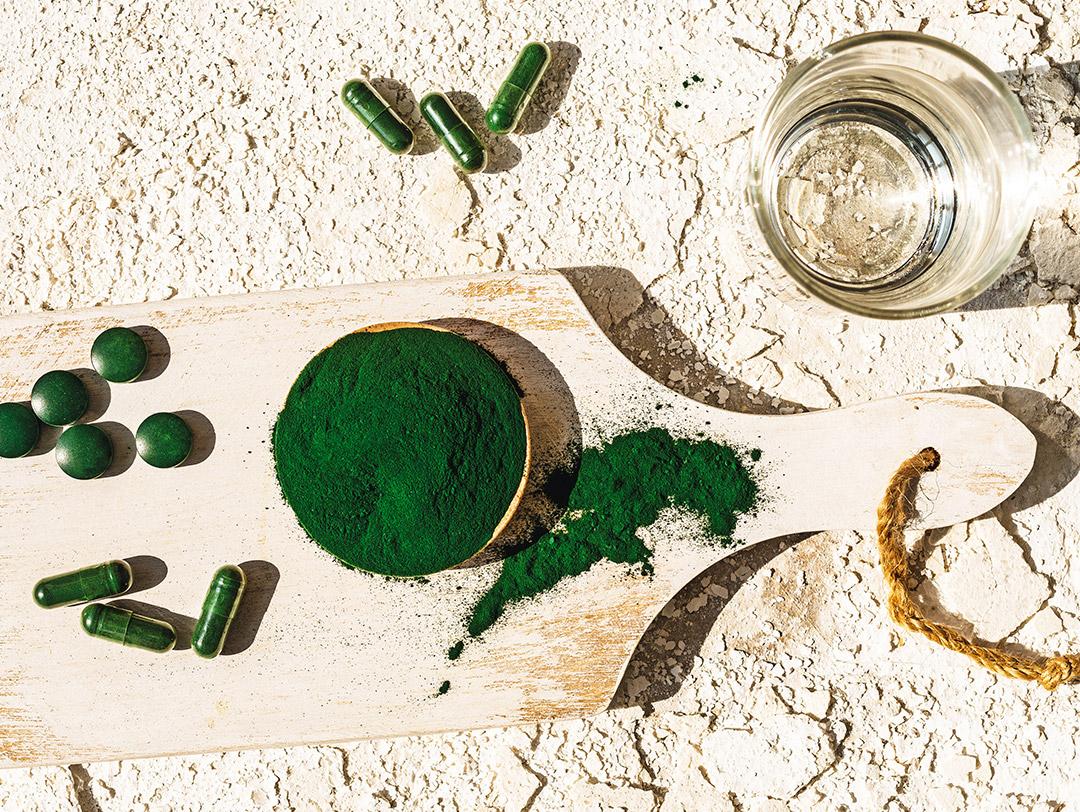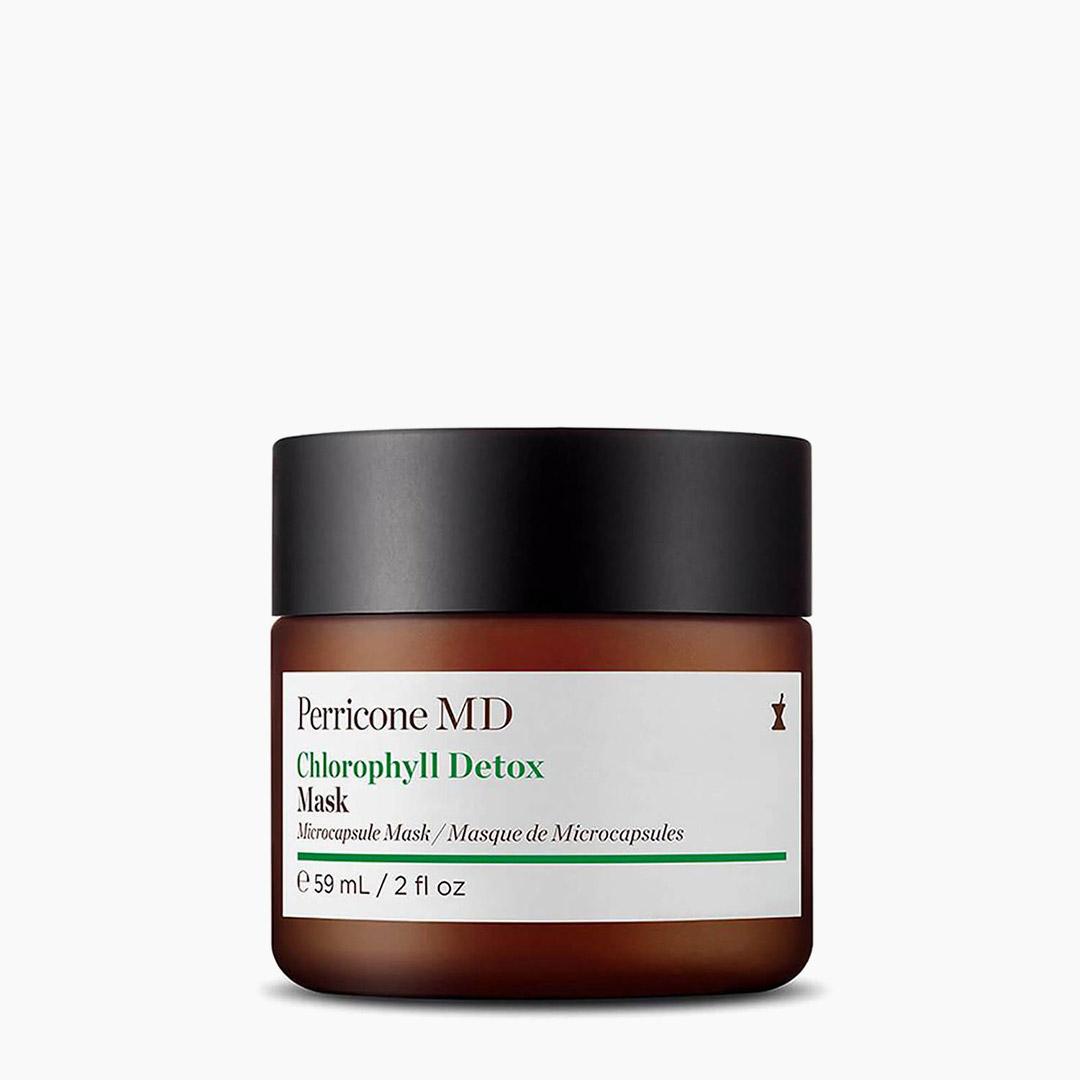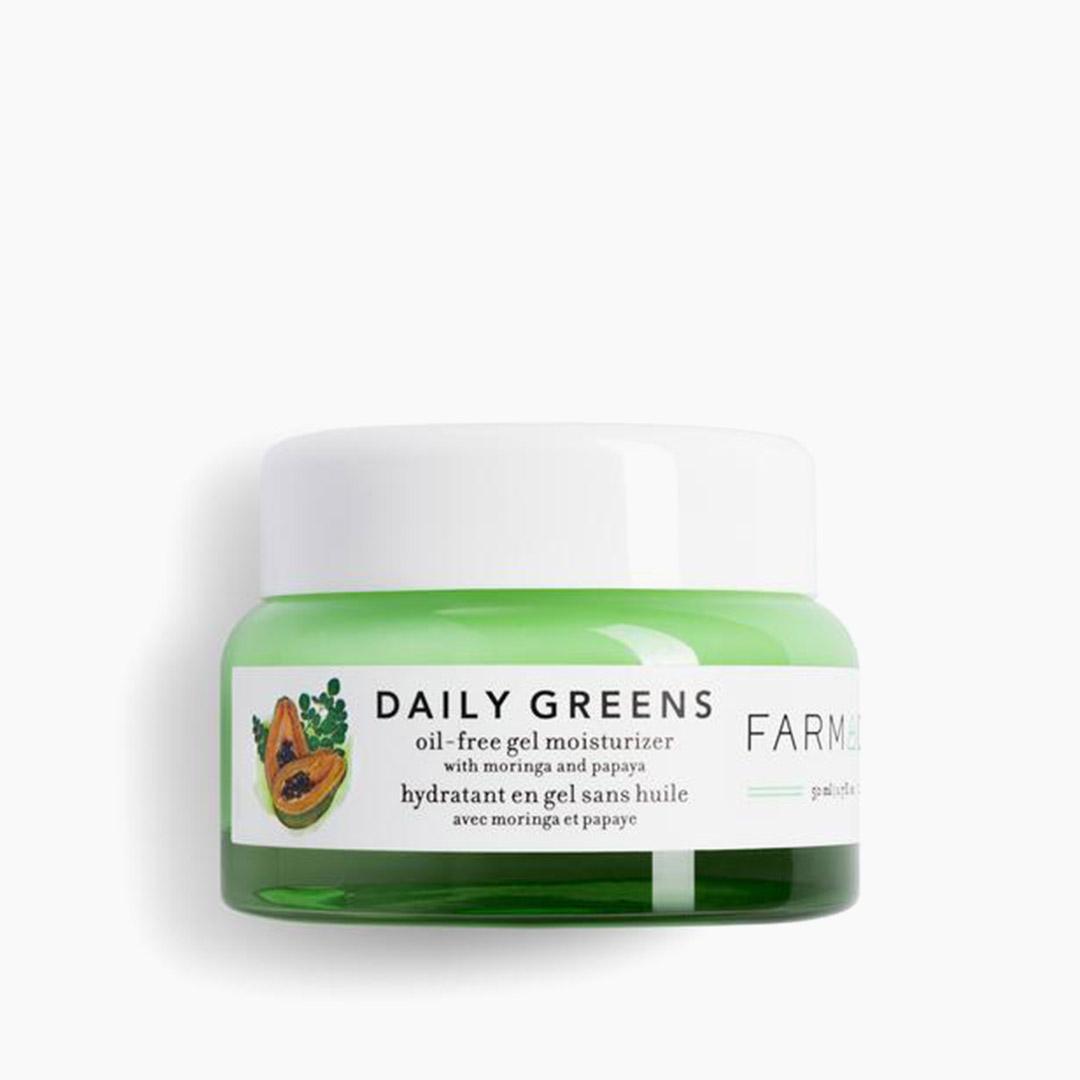Is Chlorophyll About to Be The Next Buzzy Skincare Ingredient? Here’s What Research Says



Brittany Leitner


When you think of chlorophyll, you probably think of plants and learning about photosynthesis in high school. Now that we’re all dabbling in skincare, standing in front of our skincare shelf often feels like conducting our own personal science experiment—and yes, that includes chlorophyll.
But...why? “Chlorophyll refers to the green pigment that plants use to make food during photosynthesis, and is thought to have antioxidant and anti-inflammatory benefits,” explains dermatologist Anna Karp, MD. As it begins to buzz around the skincare world, Dr. Karp is quick to point out that its benefits for skin have not been widely studied or proven. However, that doesn’t stop certain celebrities like Reese Witherspoon (who uses it for acne) and Kourtney Kardashian (who uses it for overall body health) from recommending it to their loyal followers.


It's about glam time you treated yourself.
MEET THE EXPERT
Dr. Anna Karp is a double board-certified dermatologist practicing at SINY Dermatology in Park Slope, Brooklyn and New York, NY. She is also an asst. clinical professor of dermatology at NYU School of Medicine.
Is chlorophyll actually good for skin?
So, what’s the verdict on chlorophyll? Still undecided, but its skin healing properties do appear promising. One study published by The National Center for Biotechnology Information (NCBI) suggests that a chlorophyll gel applied topically can help repair photoaged skin.
Another study published by NCBI in 2015 also suggested that chlorophyll applied topically reduced the appearance of acne and new blemishes. Although its benefits aren’t yet definite, it’s safe to say that it can’t hurt to try it. It’s a natural ingredient, so you just may find that trying it out can improve your skin concerns.
How to use chlorophyll for skin:
In a nutshell, it’s super easy to incorporate. You can take chlorophyll internally—with premade waters or by adding chlorophyll drops to water/beverages—or apply it topically by choosing skincare products that contain it. However, one of the easiest ways to ingest chlorophyll is by finding it in healthy foods you already know and love. “It is best to stick to a well-balanced diet including leafy greens,” says Dr. Karp, adding that vegetables like broccoli, spinach, collard greens, and spirulina all contain chlorophyll.
Should you try chlorophyll for acne or other skin problems?
“Because chlorophyll is anti-inflammatory, it is thought to potentially be helpful in reducing redness and inflammation associated with acne,” explains Dr. Karp. “That said, there are not enough studies to confirm these benefits at this time. Additionally, it is also believed to help with anti-aging concerns given it contains antioxidants to help fight free-radical damage.” Plus, it’s even being studied for its potential role in wound healing, since it has natural antibacterial properties.
The chlorophyll products we’re loving:
1. PERRICONE MD Chlorophyll Detox Mask


This mask starts out as a gel and dries to a clay, making it perfect for those with combination-to-oily skin types. PERRICONE MD touts the benefits of chlorophyll, saying “Chlorophyll is a nutrient-dense antioxidant pigment found in algae that cleans and purifies. Helps draw out and absorb toxins, dirt and oil and is rich in magnesium and phytonutrients.”
2. BIOCLARITY Clear Skin Routine


This acne-fighting system uses floralux, which is a blend of chlorophyll, copper, and antioxidants that is thought to help soothe skin, reduce redness, and clear skin of acne-causing bacteria. Floralux is trademarked by BIOCLARITY and helps the brand keep its 100% vegan label by using exclusively plant-based ingredients in skincare. Many reviewers note that this treatment has helped save their skin from painful and annoying breakouts.
3. FARMACY Daily Greens Oil-Free Moisturizer


While this product doesn’t contain concentrated chlorophyll, it is made from vegetable ingredients, such as kale, cucumber, and eucalyptus, which contain phytonutrients that are thought to help relieve inflammation in skin the same way chlorophyll does.
More Acne-Fighting Super Ingredients
If acne is your main concern and you want to tackle the issue with chemical-grade ingredients, here are a few you should know.
Retinol: Retinol is one of the most buzzy and powerful anti-aging skincare ingredients that can also help fight acne. Retinol reduces oil production, unclogs pores, and even prevents acne scars and hyperpigmentation (dark spots) from developing. Try using it overnight in a treatment. SUNDAY RILEY makes a powerful p.m. serum that’s also made with blue-green algae to amp up its benefits.
Glycolic Acid: Similar to salicylic acid, glycolic acid helps dissolve dead skin cells and debris that clog our hair follicles and cause acne. Unlike salicylic acid, though, glycolic acid is an alpha-hydroxy acid (AHA). These types of acids are known for their gentler exfoliating abilities that improve skin tone and complexion. Try using glycolic acid in a toner or mask, like this one from REN SKINCARE, which contains additional acids like lactic, citric, and tartaric to help smooth skin texture.
Salicylic Acid: Salicylic acid is a powerful ingredient against acne that is also gentle on skin. It penetrates the skin to lift out pore-clogging ingredients, like dead skin cells, excess oil, and other impurities, all of which can lead to blackheads and breakouts.
Try incorporating this ingredient in your skincare routine by using a derm-developed cleanser like MURAD's Clarifying Cleanser. It cleans deep into pores with 1.5 percent encapsulated salicylic acid and has soothing ingredients such as calming green tea extract to help reduce inflammation caused by acne.
Benzoyl peroxide: This ingredient is often mentioned alongside salicylic acid but can be somewhat harsher on skin, so make sure you have your trusted moisturizer handy when you use this product. TULA makes a great spot-treatment formulated with 5% benzoyl peroxide that can work on unexpected zits.
Want in on all the IPSY Glam Bag fun? Take our Beauty Quiz now to get started. Already an Ipster? Refer your friends to earn points, which you can use toward products. Either way, don’t forget to check us out on Instagram and Twitter @IPSY.
Like this article? Share it with your friends by clicking the icons below!
Liked this post? Share!
Related Stories


Ingredient Index
Why Argan Oil Is the Versatile Ingredient Everyone Needs in Their Beauty Routine
Published on Oct 15, 2025 • 8 min read


Ingredient Index
Every Skincare Ingredient You Should (and Shouldn’t!) Use With Vitamin C
Published on Oct 2, 2025 • 9 min read


Ingredient Index
No, Not All Peptides Are the Same, But All Are Beneficial
Published on Aug 12, 2025 • 4 min read


Ingredient Index
Top Anti-Inflammatory Ingredients to Soothe Irritated Skin
Published on Aug 5, 2025 • 6 min read


Ingredient Index
Iron Oxides Are the Skin-Protecting Ingredients Your Routine Has Been Waiting For
Published on Mar 14, 2022 • 3 min read


Ingredient Index
Galactomyces Is the Latest Skincare Ingredient You’re About to See Everywhere
Published on Jul 10, 2025 • 3 min read


Ingredient Index
Everything to Know About the Gentle Healing Ingredient Bisabolol
Published on Jul 10, 2025 • 6 min read


Ingredient Index
Yes, You Should Be Using Adapalene If You Have Acne
Published on Jul 10, 2025 • 4 min read


Beauty Picked Just for You
Get 5 products worth up to $70
Plus exclusive access to epic deals up to 80% off
Starting at just $14/month. Cancel anytime.